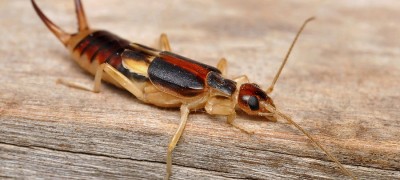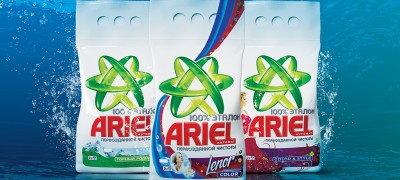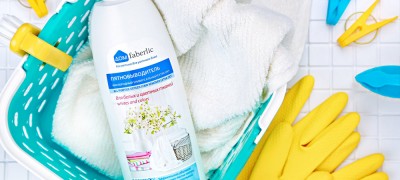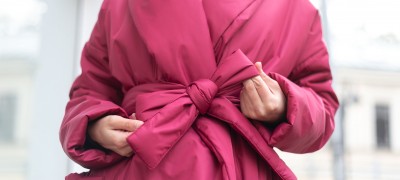Correct washing of things in a washing machine or by hand
Laundry is an integral part of every person's life. Everyone wants to look neat and tidy, so it's important to remove all dirt on time. It is important to take into account fabrics, texture, type of pollution. Some can only be washed by hand, while most of the dirt is handled by an irreplaceable washing machine.
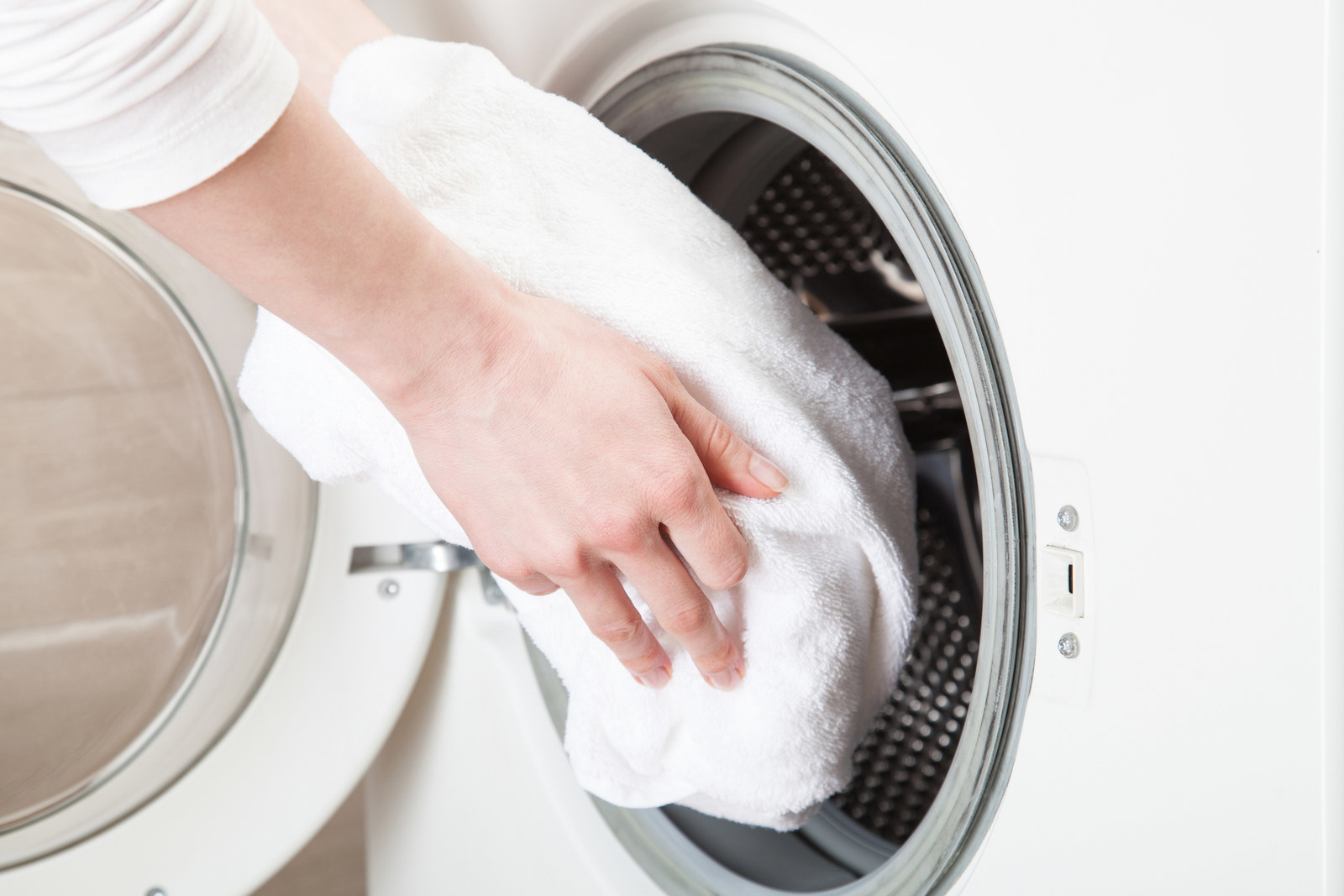
How to properly wash things in a washing machine
Washing machines make life much easier for housewives. It is difficult to imagine how much time it would take for a modern housewife to do this, given the abundance and variety of fabrics, colors and designs of things. However, before starting, it is recommended that you familiarize yourself with the basic rules of how to wash in a washing machine.
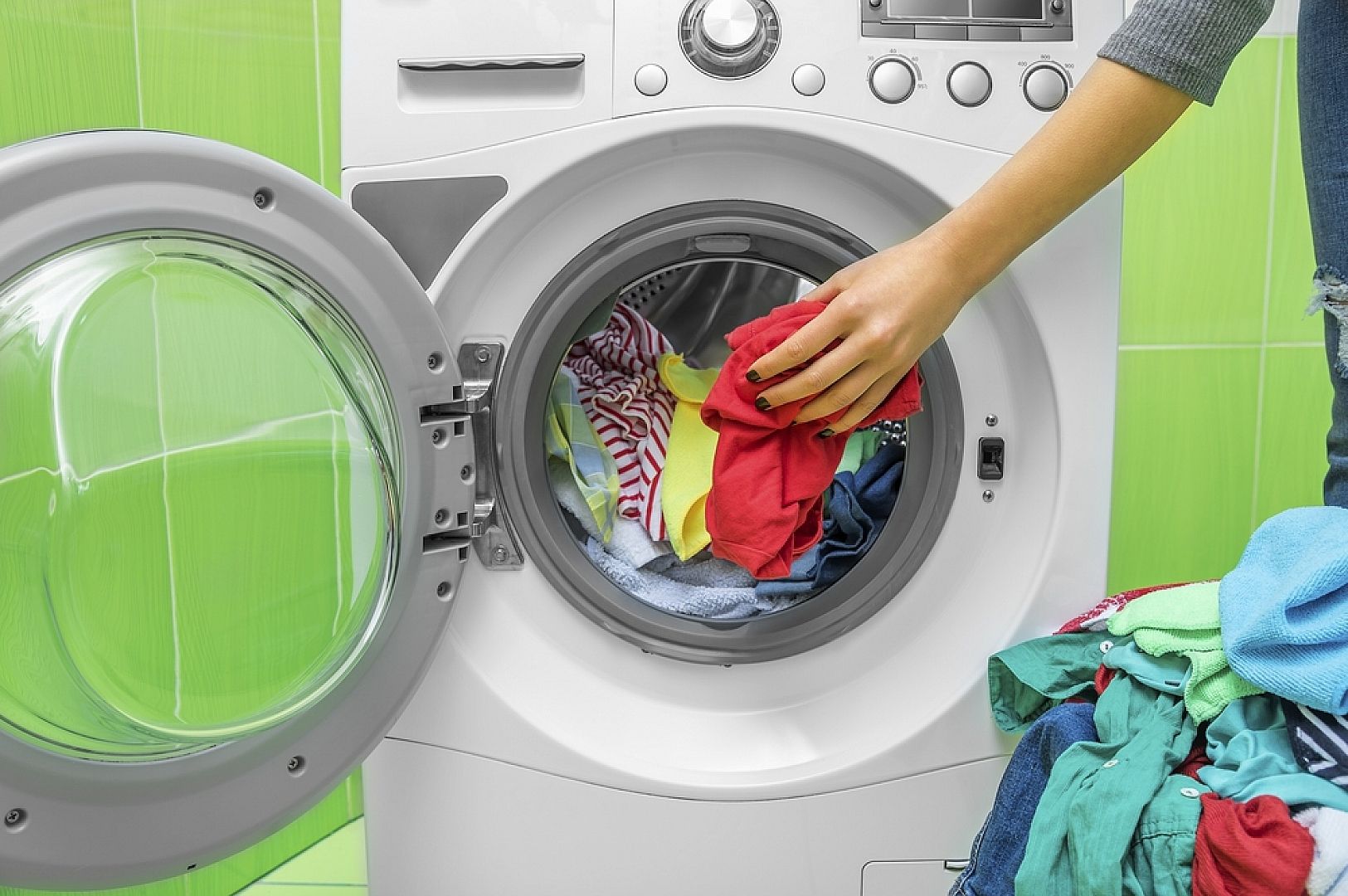
At what temperature
When choosing a temperature regime, one should rely on the recommendations written on the tag by the manufacturer. The manufacturer takes into account not only the material, but also the resistance of paint, fittings and accessories, if these parts cannot be removed. Light-colored cotton and linen products can be washed at 95 degrees, and for brightly colored items it is better to stop at 50-60.
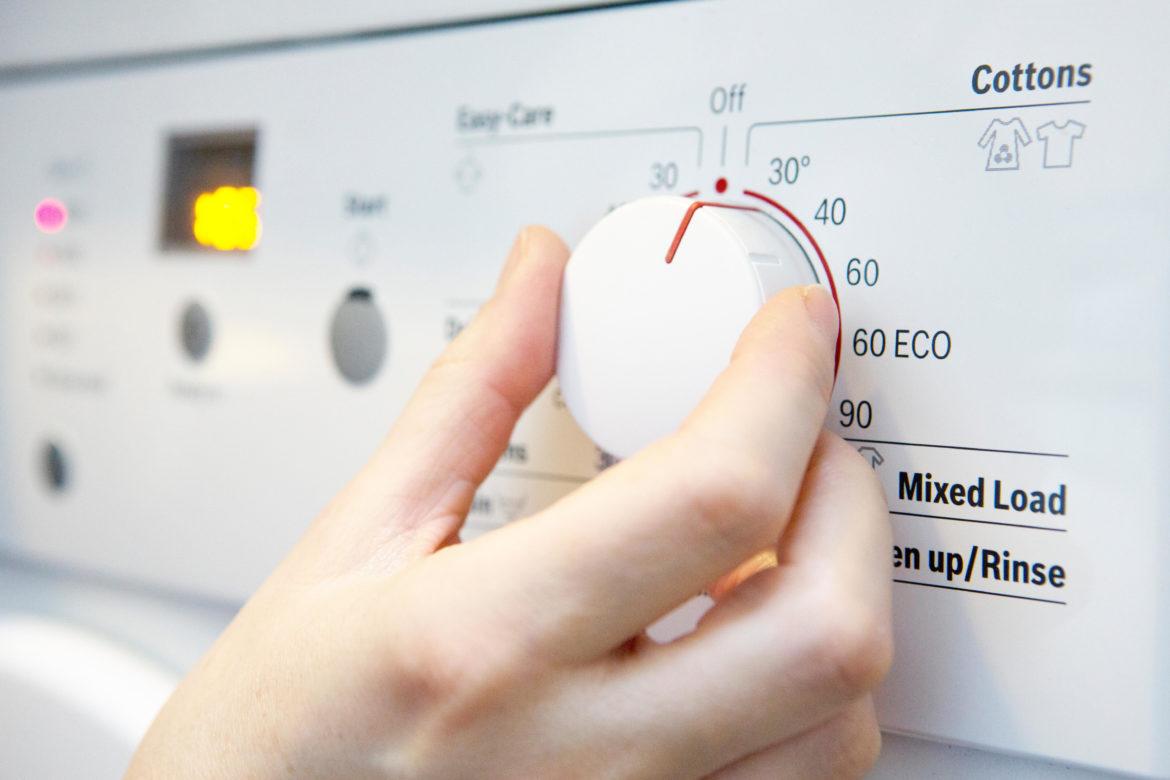
Synthetic is not recommended to be washed at temperatures above 50 degrees. Woolen and silk items require a more delicate attitude, so they are washed in cool water (40 °). To wash brightly colored linen, prone to shedding, as well as products made from natural fabrics, which are prone to shrinkage, it is better to choose a mode with 30 °.
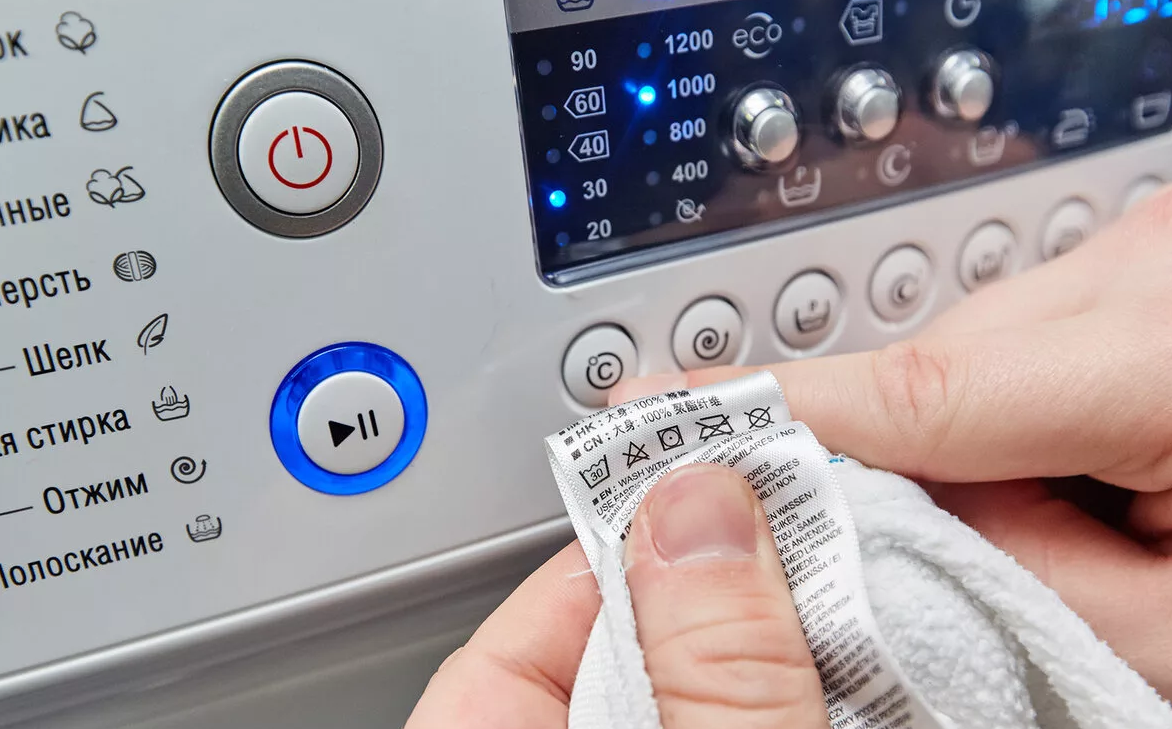
Which mode
The choice on which mode to wash white clothes, uniforms or favorite jeans largely depends on the type of material and the recommended temperature regime. For items made from durable materials, such as jeans, sweatshirts and towels, a regular wash cycle will do. Such a program involves rapid rotation of the drum not only during the washing period, but also for spinning. The same mode is suitable for clothes with stubborn dirt, or you can use the intensive wash mode.
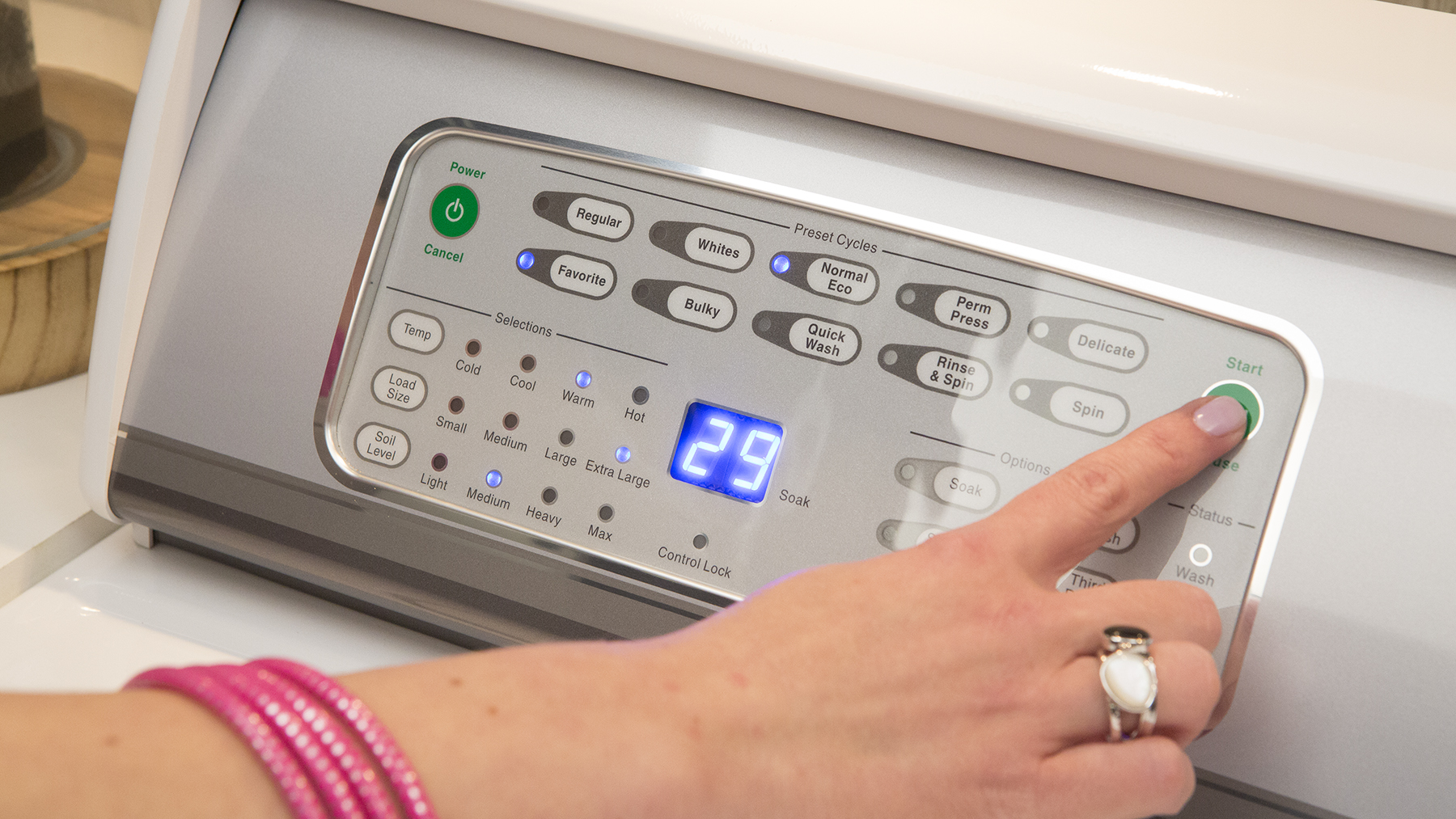
To remove stains, it is recommended to pre-soak things in a basin with cold water for about 30-40 minutes, and some machines have an additional soaking option, which greatly simplifies the life of housewives. So it is permissible to wash bed linen, a blanket or overalls.

If the clothes have decorations, embroidery, or the fabric itself is thin, then it is better to stay on the delicate wash mode. The drum rotation speed is low and the temperature is only 30 degrees. This function is suitable for tights, panties, clothing with embroidery and other decor.

For regular washing of everyday clothes without stains, the mini wash mode has been thought out. It is also suitable for washing delicate curtains from the hall, from which it is important to remove dust.It lasts no more than 30 minutes, and the choice of the drum rotation speed during drying remains with the owner.
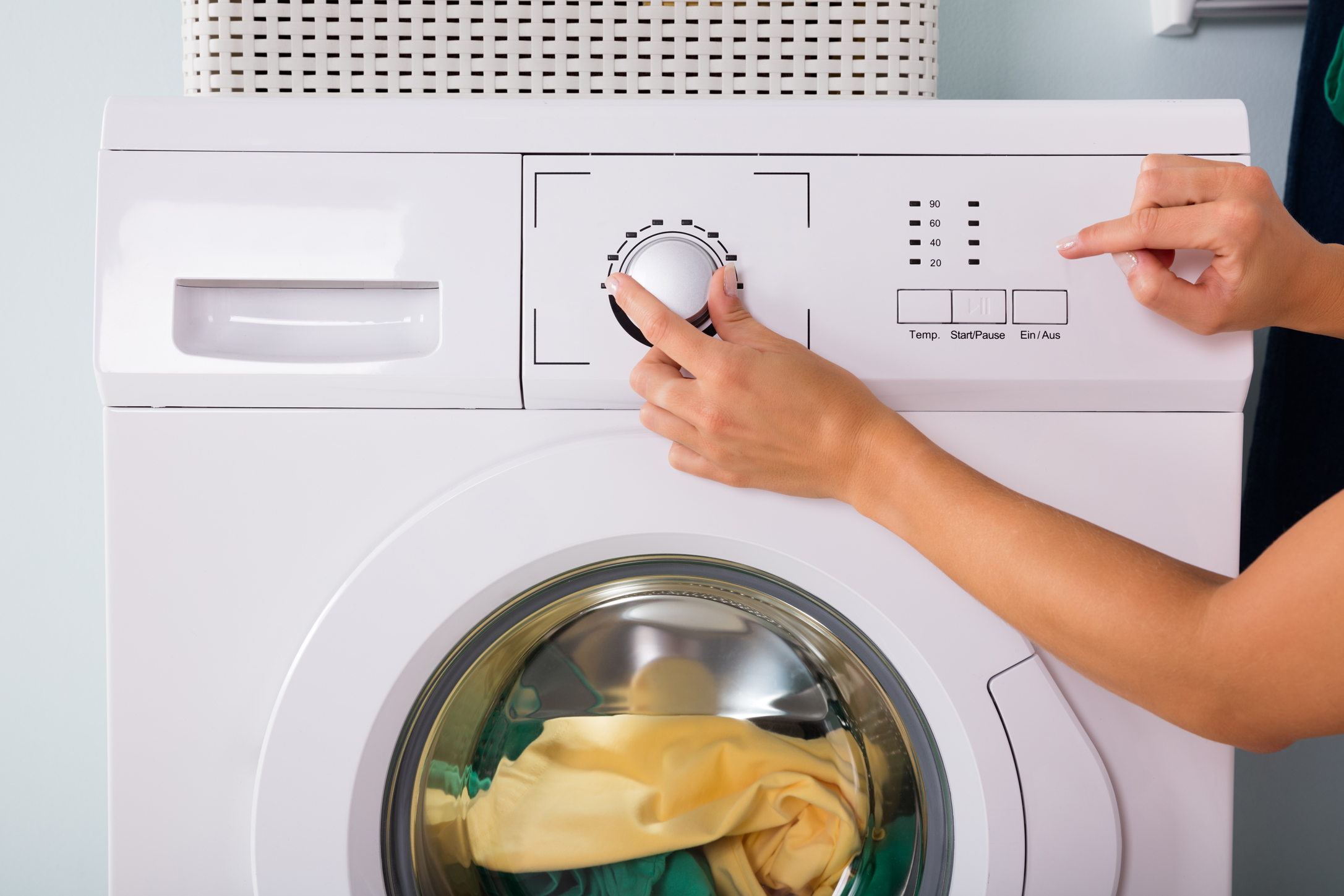
It is unacceptable to wash children's clothes as well as adults, therefore most washing machines are equipped with the Children's mode function. Biological stains are more common on clothing, and the addition of powder should be minimal. The emphasis of this mode is on the time and temperature of the water, which, by the way, heats up to 90-95 degrees. After the main washing phase, rinsing takes place.

For wool and silk, it is better to set the delicate mode. It is provided for washing at a low temperature (30 degrees) and without spinning, so that things will keep their neat look for a long time. For cotton and flax, the drum rotation speed is maximum during spinning, and the water is heated to 90 degrees.
The sport mode is intended primarily for washing trainers and tracksuits.
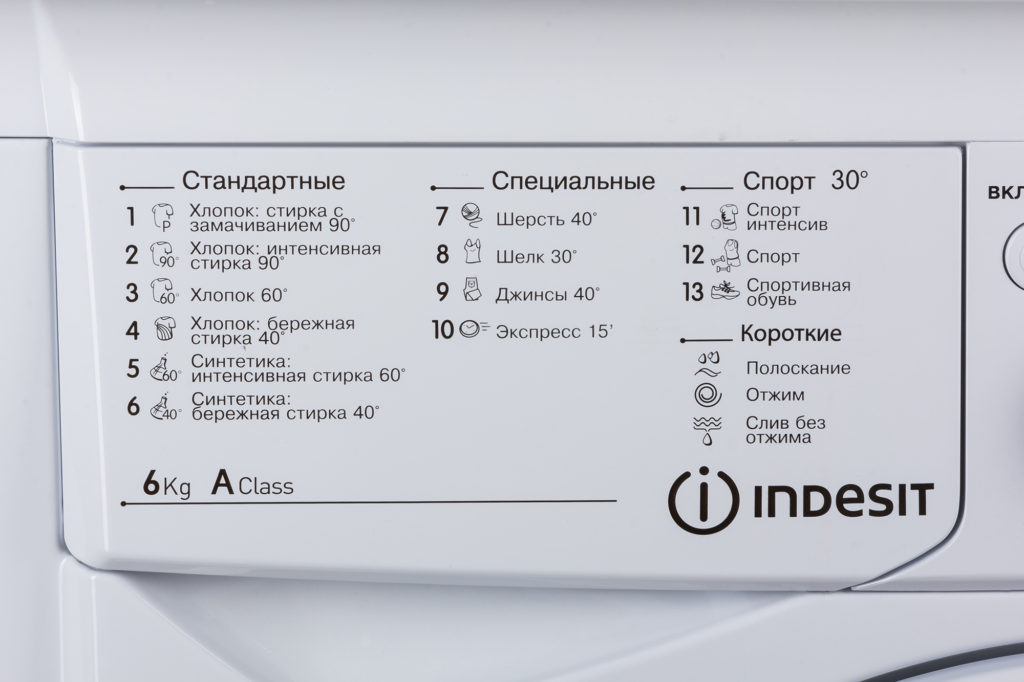
What to wash
All powders and liquids must be added to a special container, which is located in the upper right corner for front-loading machines and on the side of vertically loaded machines. If the detergent is added directly to the drum, the particles will settle in the folds of the laundry. It is also important to follow the recommendations for the amount of powder or gel.
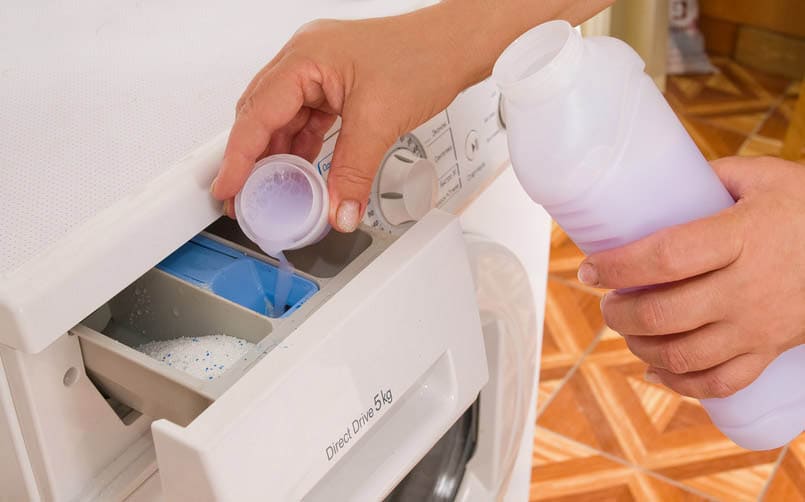
Important! Do not use chemicals for hand washing. They form a large amount of foam, which the automatic machine cannot cope with.
Choose a product in accordance with the type of fabric and dirt:
- to combat water-soluble stains (traces of sweat, salt, light oils). They disappear after being treated with conventional powders;
- insoluble in water - these are dust, sand, grease, pigments. Traces from coffee, tea, beer, wine and vegetables must be oxidized with bleach. Starch, cocoa, eggs or blood can be combated with the included enzyme particles. These are a kind of catalysts that are found in almost all modern household chemicals;
- Bleach is used only for light-colored laundry;
- To keep the paint on your favorite jeans or trousers for a long time, you should buy special gels for washing dark clothes. They are formulated to protect the fibers of dark fabrics from color washout.
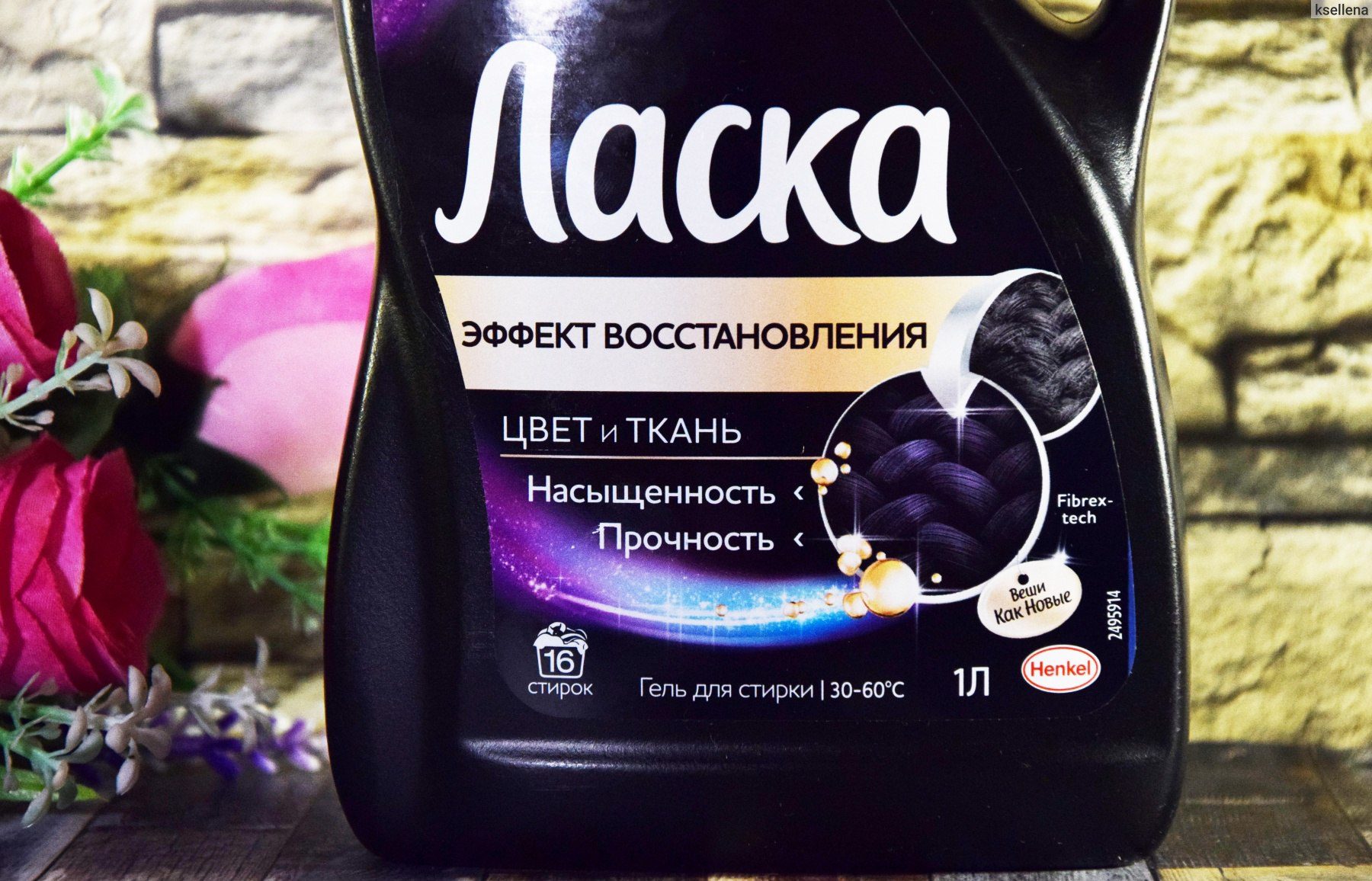
So that after drying, the clothes continue to smell good, iron easily and be soft - a small amount of rinse aid or antistatic conditioner is poured into a special compartment. Owners of delicate and sensitive skin prone to allergic reactions are advised to select products that contain only natural organic components.

Washing rules
The most important rule of every wash is to sort the laundry by color. White, colored and dark items cannot be washed together. New clothing should not be washed without making sure it does not fade. To do this, one edge is soaked in warm water and a reaction is expected. If the water remains clear, then the jacket can be safely sent to other laundry.
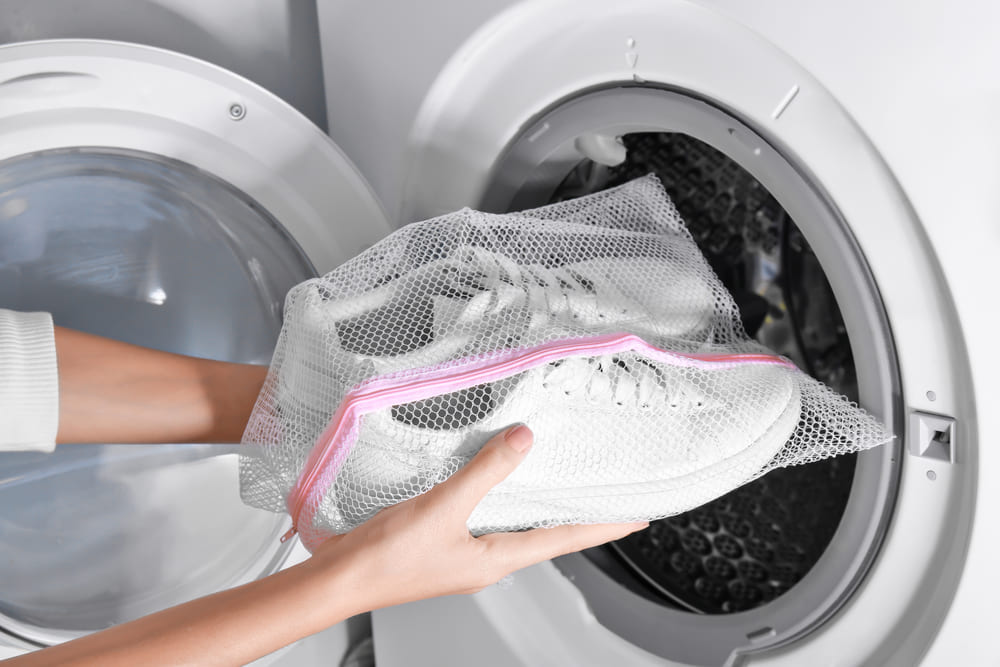
When loading, it is important to follow the manufacturer's recommendations: an overfilled drum is sometimes the reason for the shaking of the machine. In addition, if you leave a small amount of free space, then the quality of washing and rinsing will be much better.
When loading, make sure that all pockets are empty and that the zippers are closed.This will prevent the loss of fittings, which can cause damage to an expensive device.

Important! If the hostess is not sure that the fittings will remain in place after washing, then it is recommended to place the product in a special washing bag or pillowcase.
Drying
Some modern washers are equipped with a drying function. This is very convenient for housewives, because this function significantly reduces labor costs. As a nice bonus, after the dryer, the clothes seem to be ironed. To choose the right mode, you should rely on the type of fabric:
- for jeans, trousers and towels, the standard mode is suitable, since the fabric may remain damp on the gentle;
- in order to dry the laundry and then not suffer with ironing, it is recommended to set the anti-crease or steam smoothing mode;
- for things prone to shrinkage, it is recommended to choose a cold delicate mode;
- it is recommended to dry woolen clothes in a natural way.
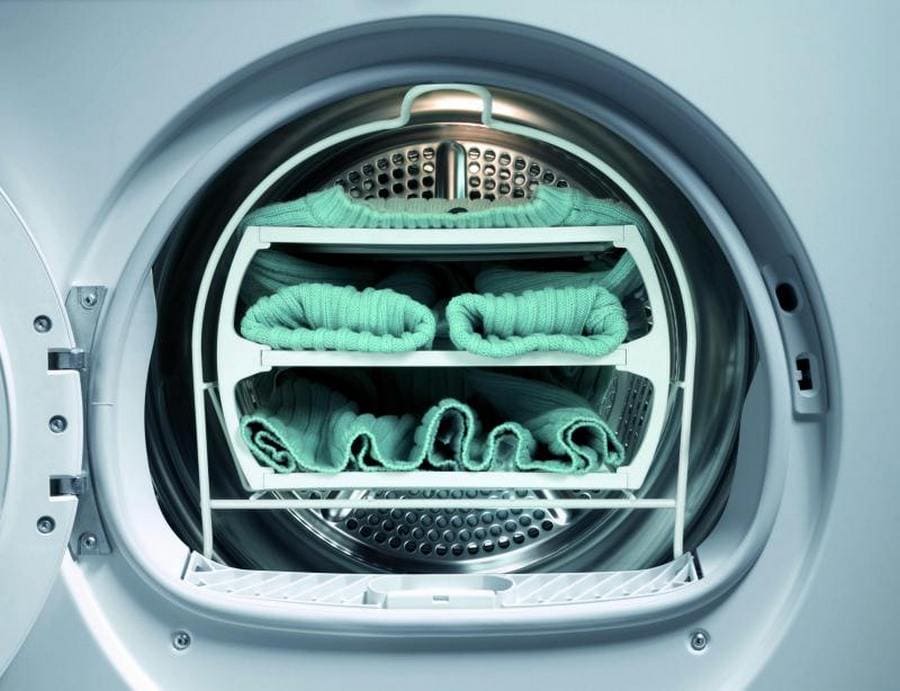
If after drying there are wrinkled areas on the clothes, then it is recommended to iron them before putting them away.
Important! Check the lower compartment in the machine regularly to remove accumulated dust particles.
How to wash things by hand
Hand washing is a rather laborious undertaking, but in some cases it is impossible to do without it.
With powder and other products
For hand washing, it is recommended to use appropriate detergents. They have increased foaming, and the particles included in the composition will not cause irritation on the delicate skin of the hands. You can also wash everything with ordinary laundry soap. You can use bleach for whites and light-colored items. Many of them work more actively together with washing powder.

Important! It is recommended to pre-soak the clothes in a soapy solution to help dirt and stains move away better.
When washing, it is enough to simply place the items in soapy water and let it get wet for 5-10 minutes. Further things get in the way and press a little right in the water. Most contamination is easy. It is recommended to rub the most stubborn stains on a washboard in soapy water more thoroughly, and for cuffs and collars on shirts, you can use a medium-hard brush.
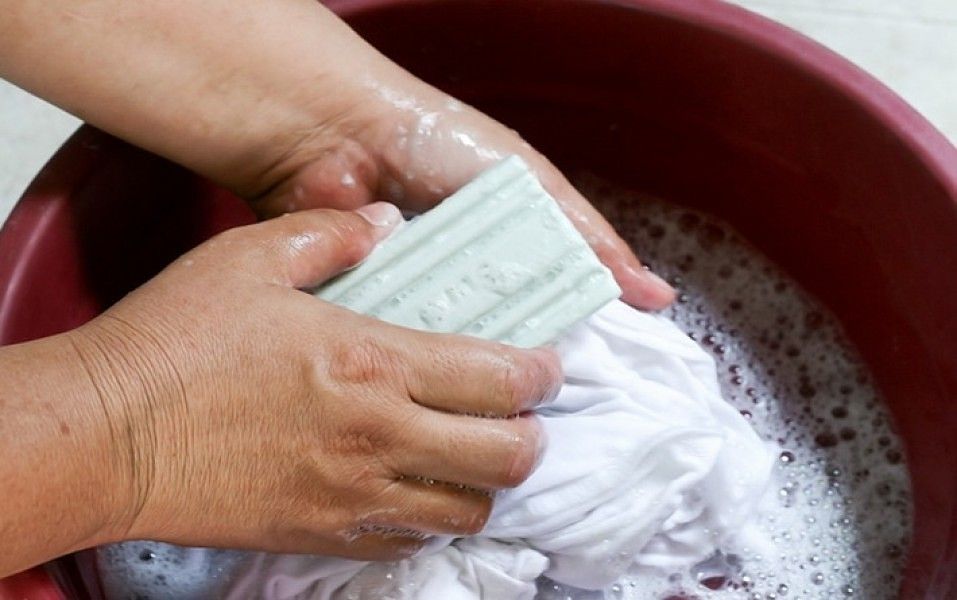
Vegetable oil, added to boiling water with washing powder, provides the deepest penetration of active particles into the depths of the fibers, which ensures getting rid of most stubborn stains.
Rinses and conditioners are not needed. When rinsing, you can add a couple of tablespoons of lightly concentrated vinegar to the last water to maintain brightness for a long time, and glycerin will help keep woollens soft and fluffy.

Different types of things
It is recommended to wash delicate fabrics exclusively by hand in order to preserve their appearance for a long time. It is recommended to turn woolen things inside out and only after that start the process of removing stains. Also, accuracy from the hostess is required:
- silk products;
- cashmere;
- delicate lace;
- underwear;
- things with unstable paint.
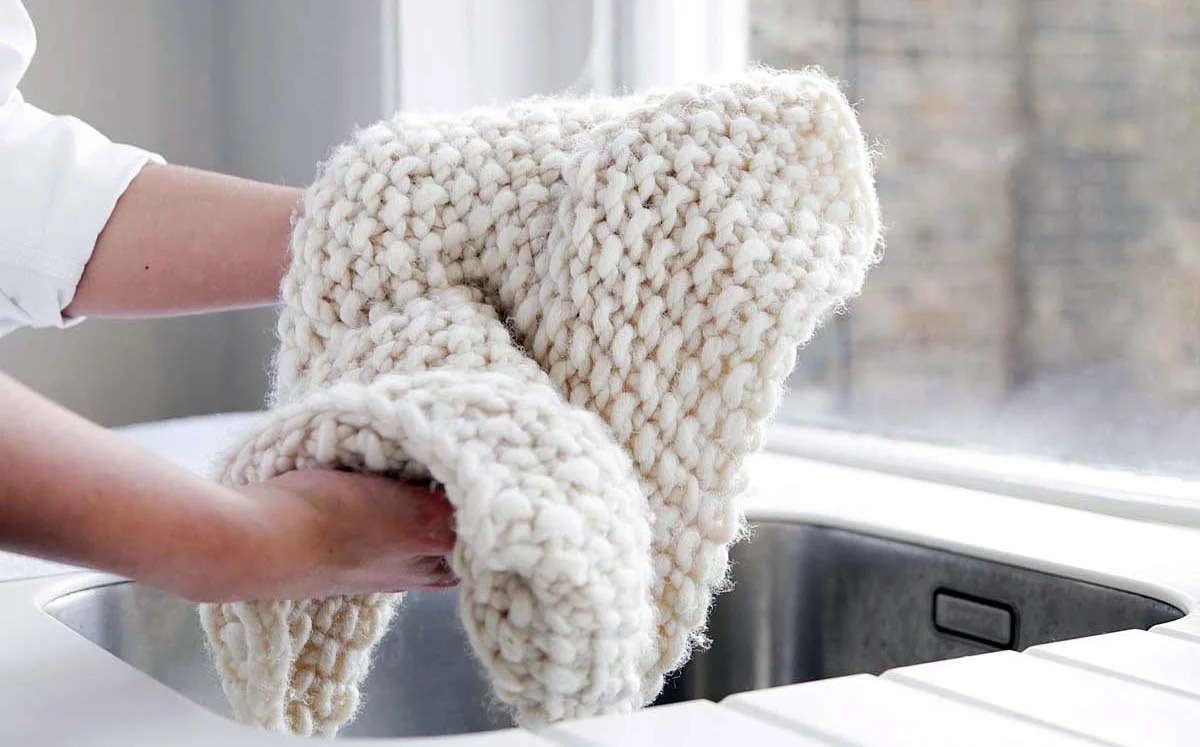
Important! For stubborn stains, it is recommended to add soap and rub the dirt with your hands. The use of brushes or a board is excluded - it is better to give extra time for soaking.
At what water temperature
Delicate and delicate fabrics and items prone to shrinkage are washed exclusively in cool water.
Important! In order to preserve the health of hands and joints for a long time, it is recommended to soak things in cold water beforehand, and at the beginning of an active wash, it is diluted to a comfortable temperature.
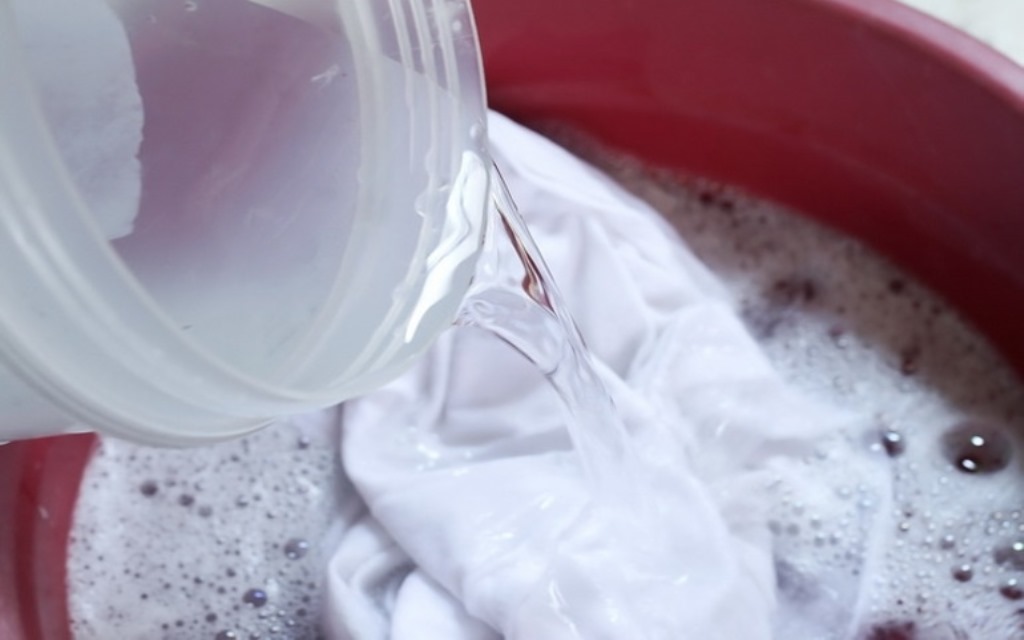
For children's clothes, cotton and linen products, you can increase the temperature. Often, housewives soak them first in almost boiling water, wait for them to cool and then finish the process with their hands. This removes most of the stubborn stains.

Drying
After rinsing, delicate silk, cashmere and wool are not twisted, but allowed to drain freely. If the time for drying is limited, then the product is placed in a towel and gently wrung out.
Wool and cashmere items are lightly wrung out and placed on a horizontal dryer to avoid overstretching of the threads.

Cotton, linen, dense jersey - twist. To get rid of most wrinkles, they are shaken and then hung on a clothes dryer.
Important! In order for things after drying to be not very wrinkled, they must be hung “at the seams”, getting rid of unnecessary folds.

A nearby radiator or battery will dramatically shorten the drying time, but things around them will become tougher.
Knowing the basic rules and nuances of how to properly wash things in the washing machine or by hand, you can avoid many mistakes.

VIDEO: 5 life hacks for manual and automatic washing.
